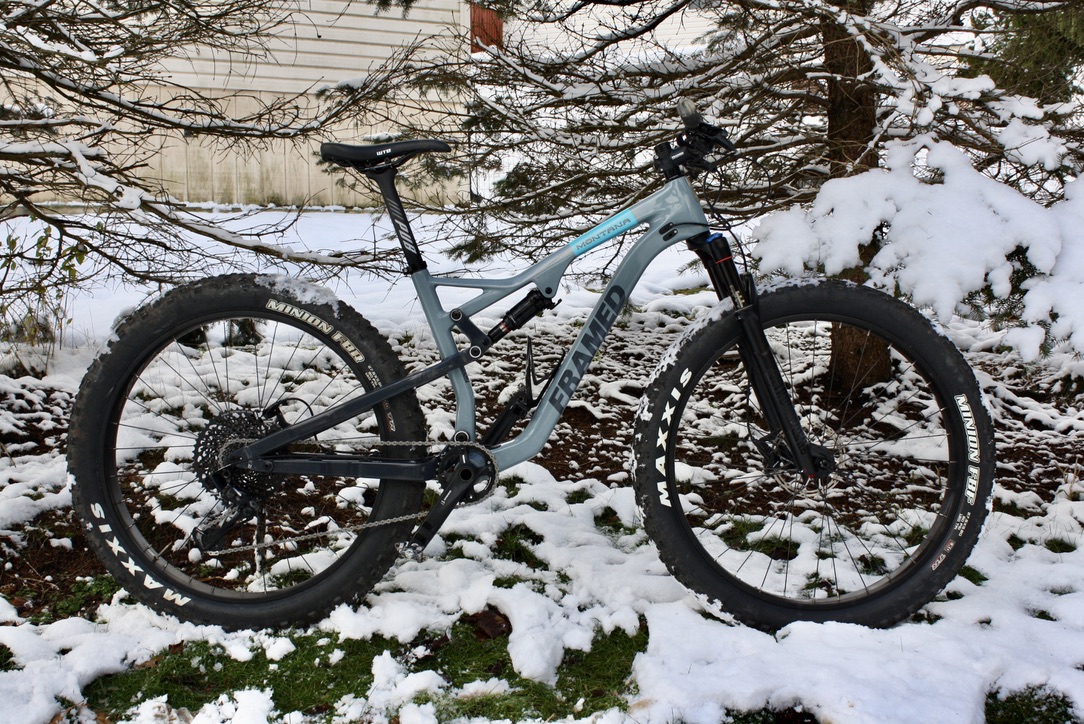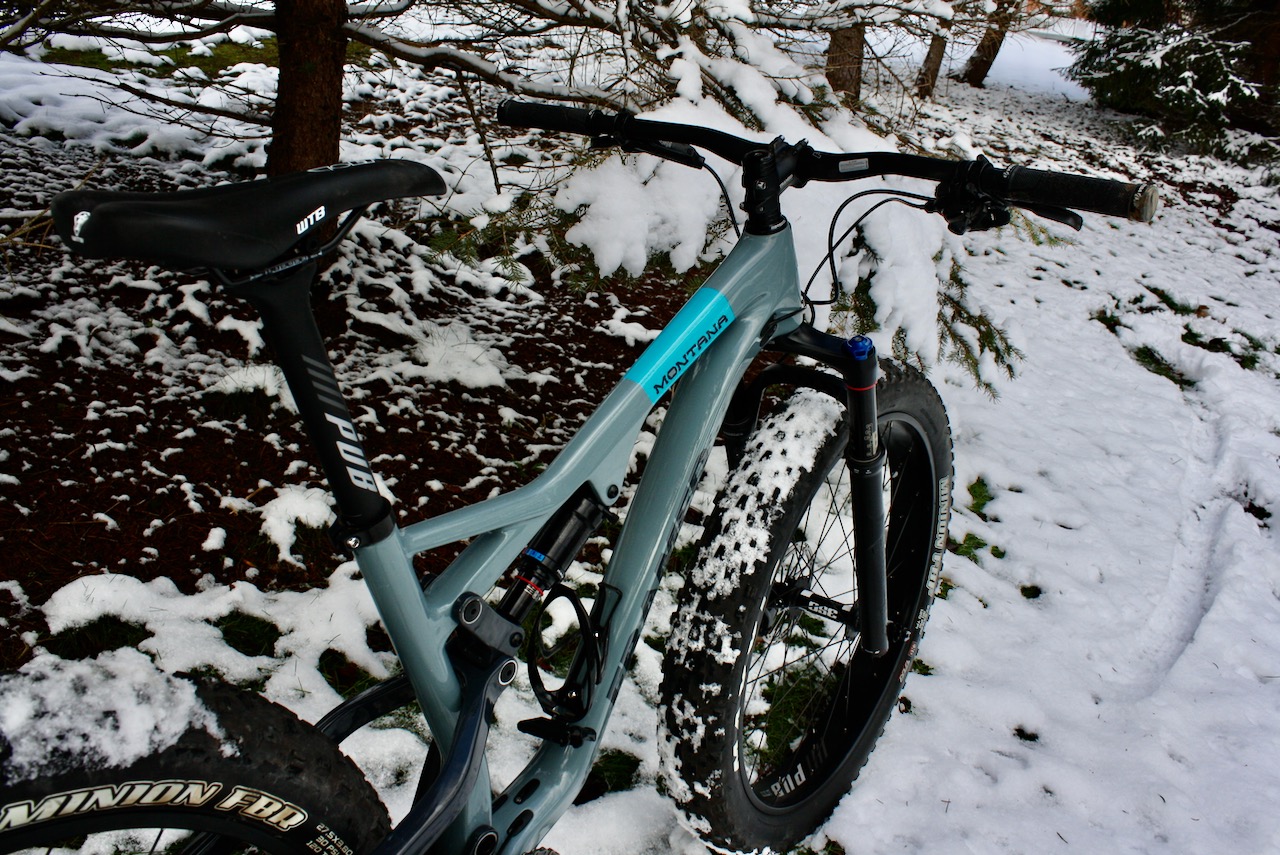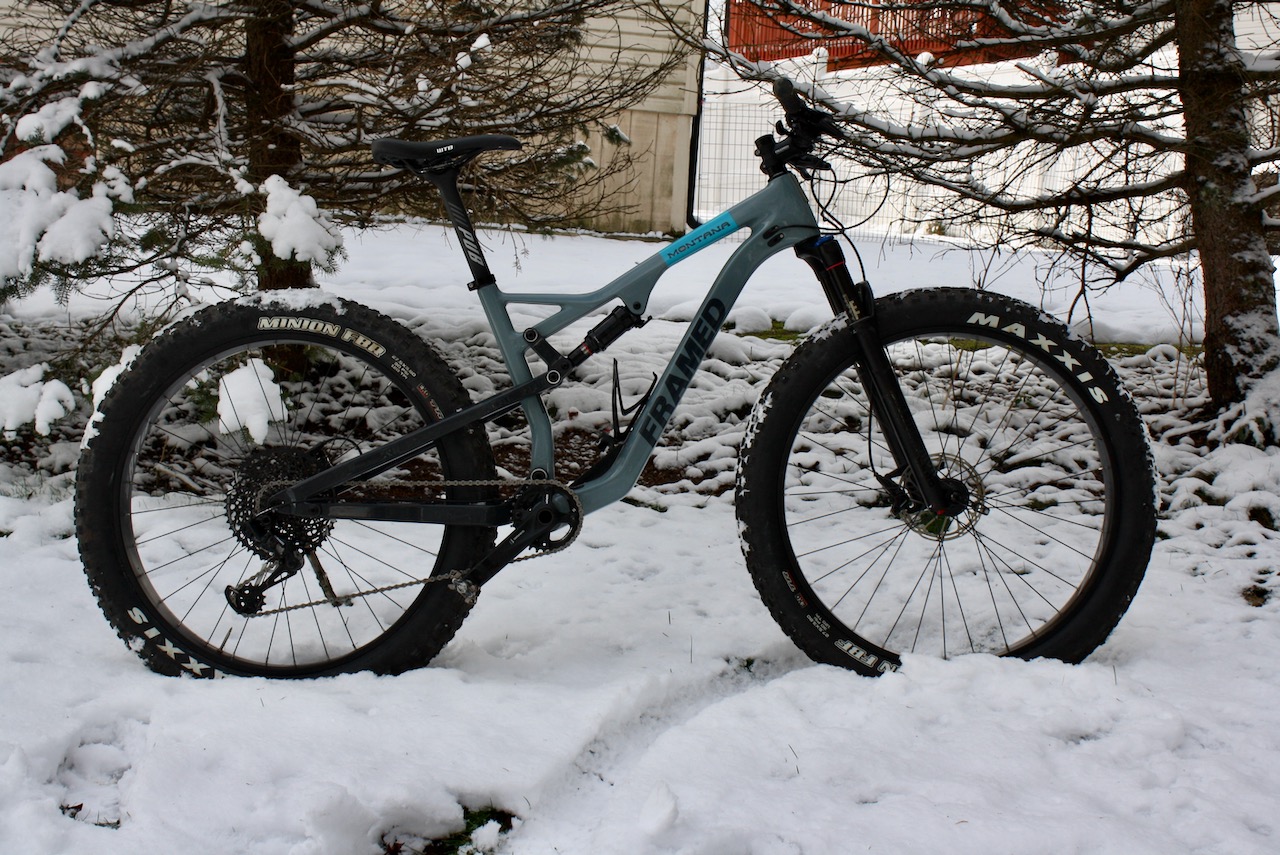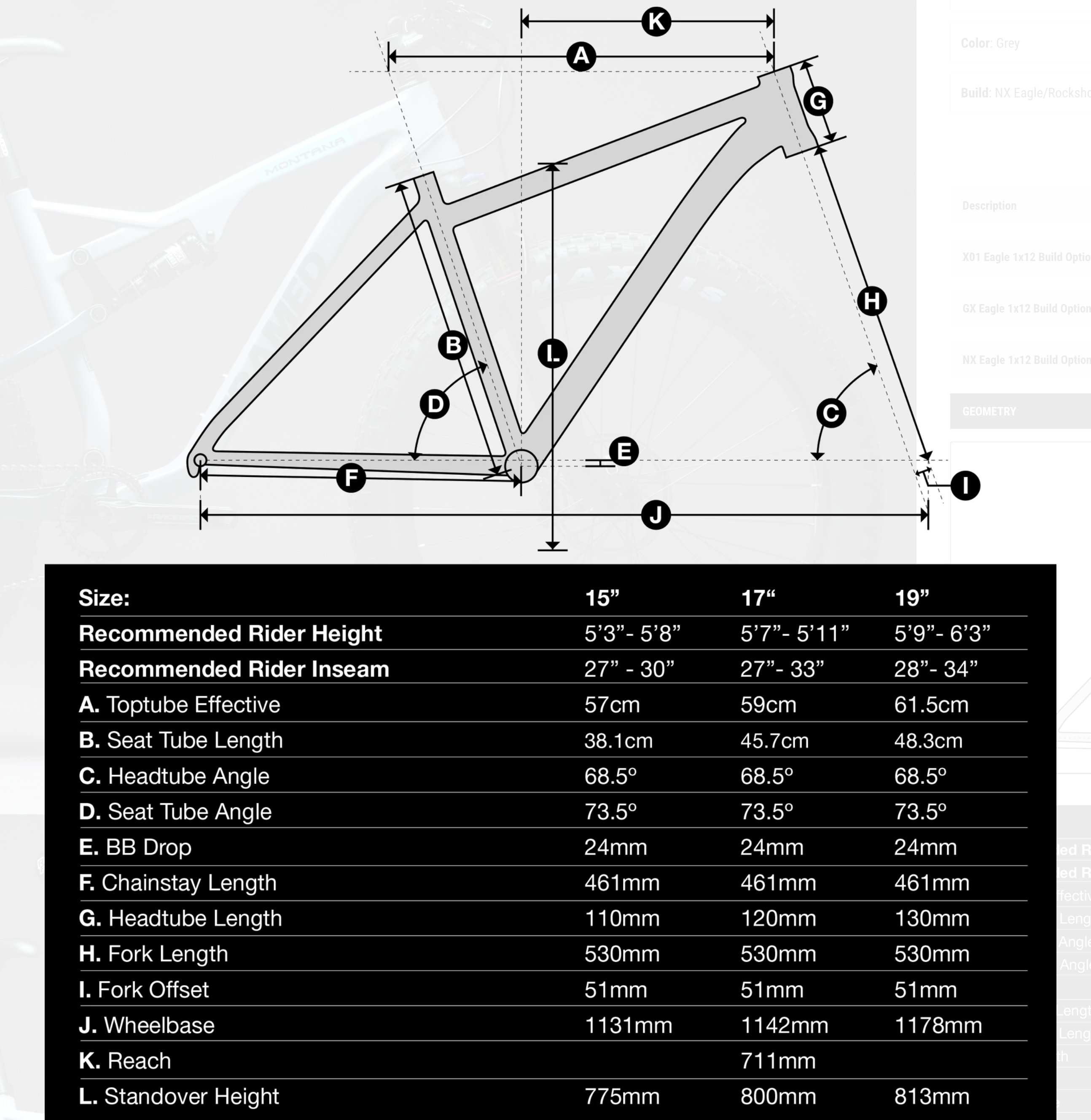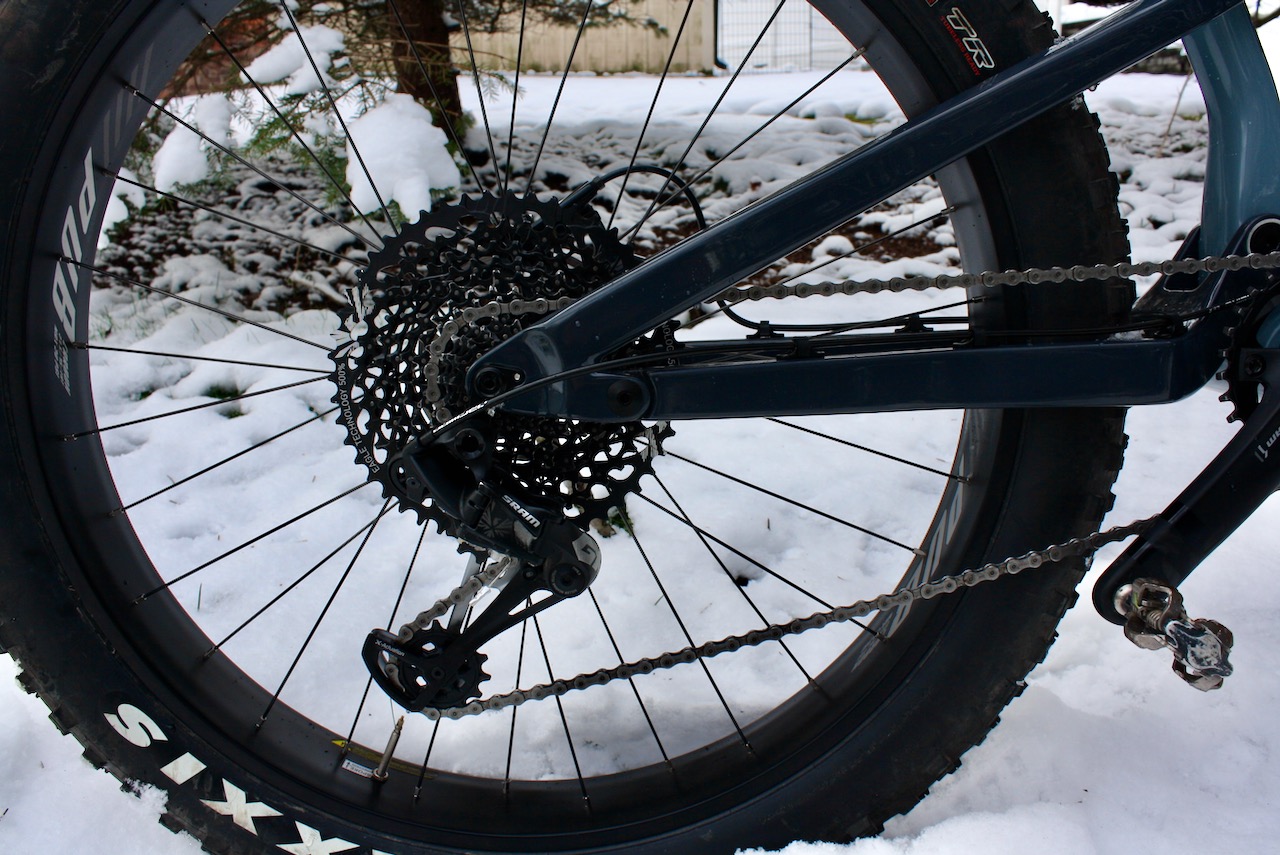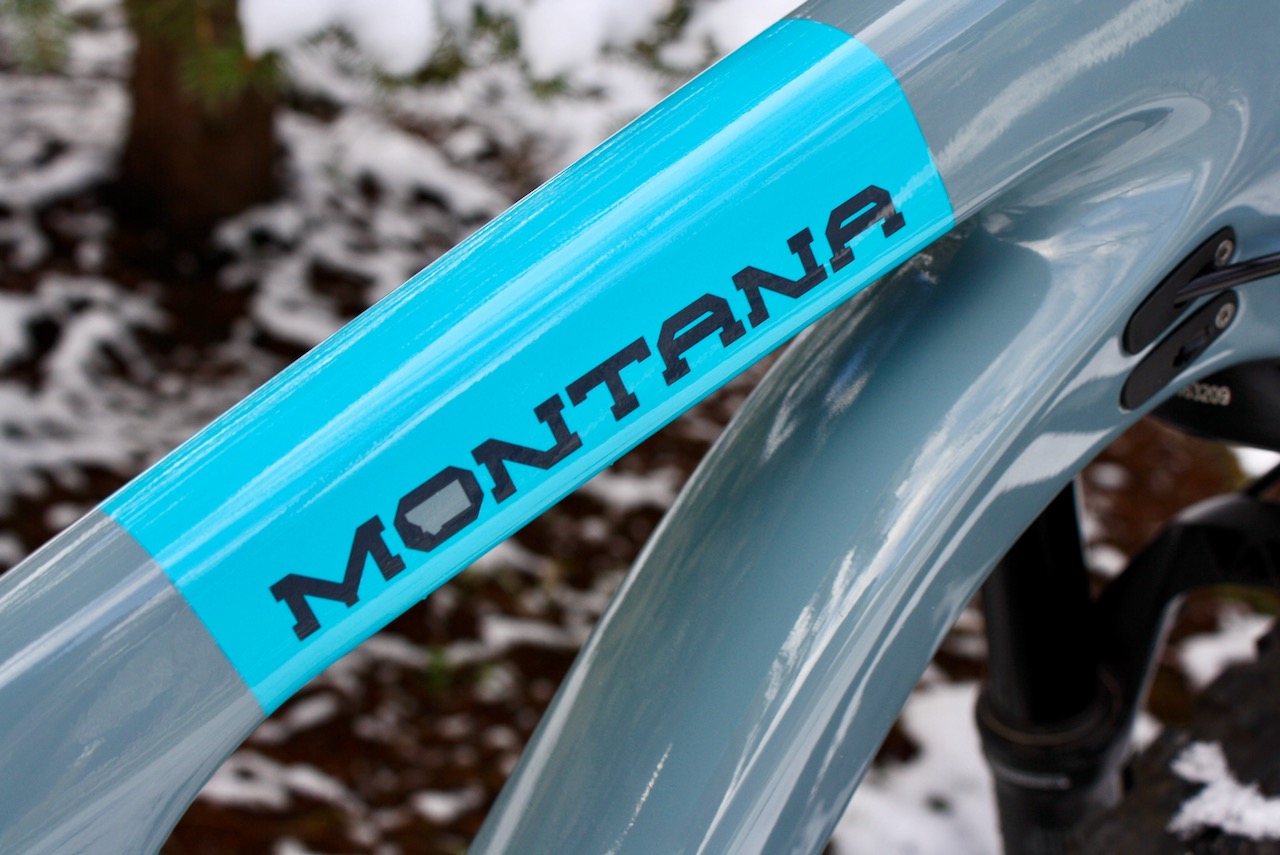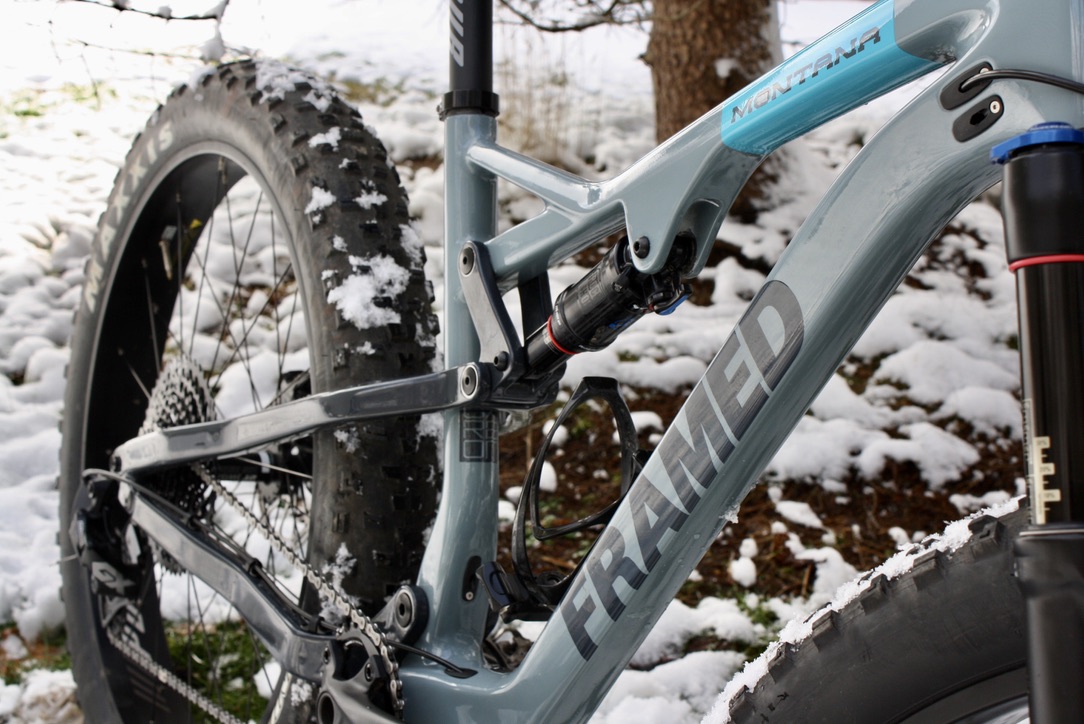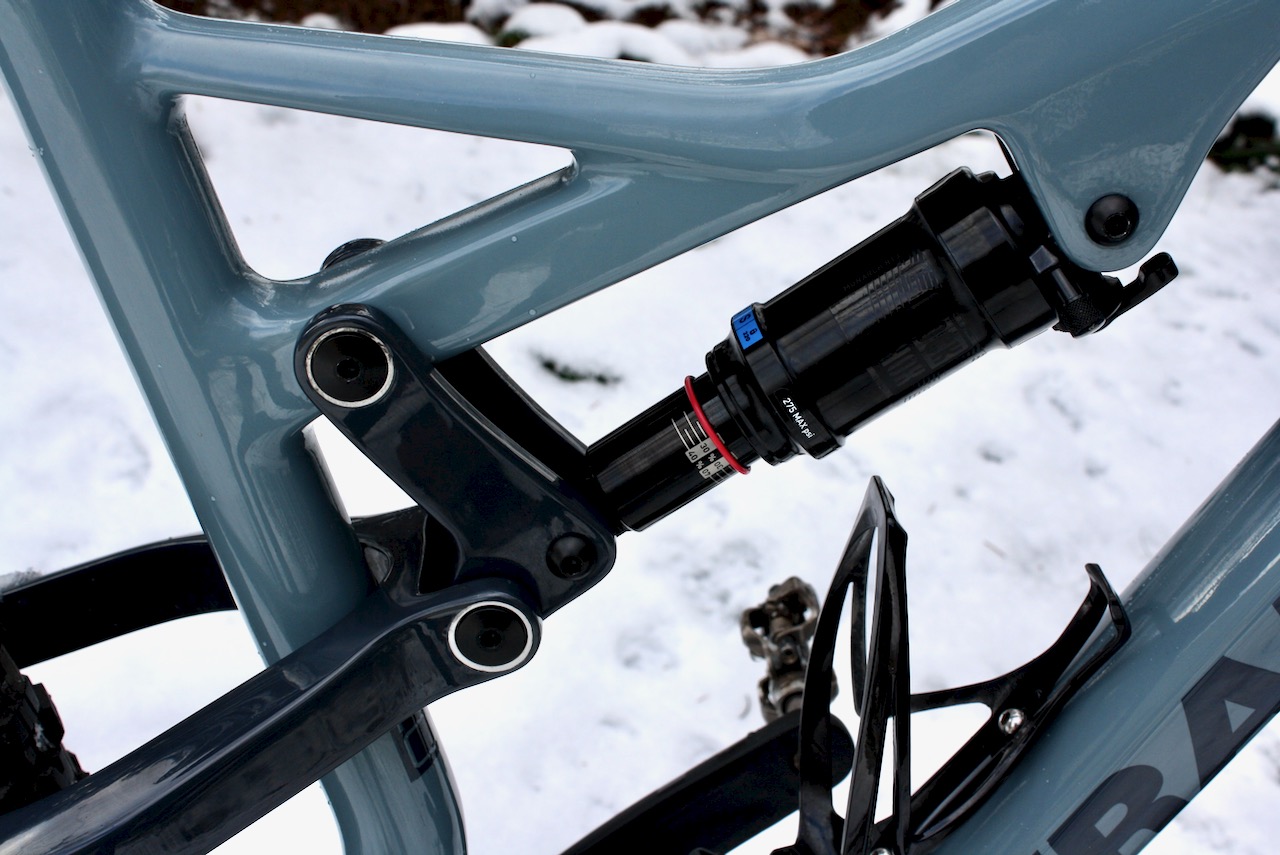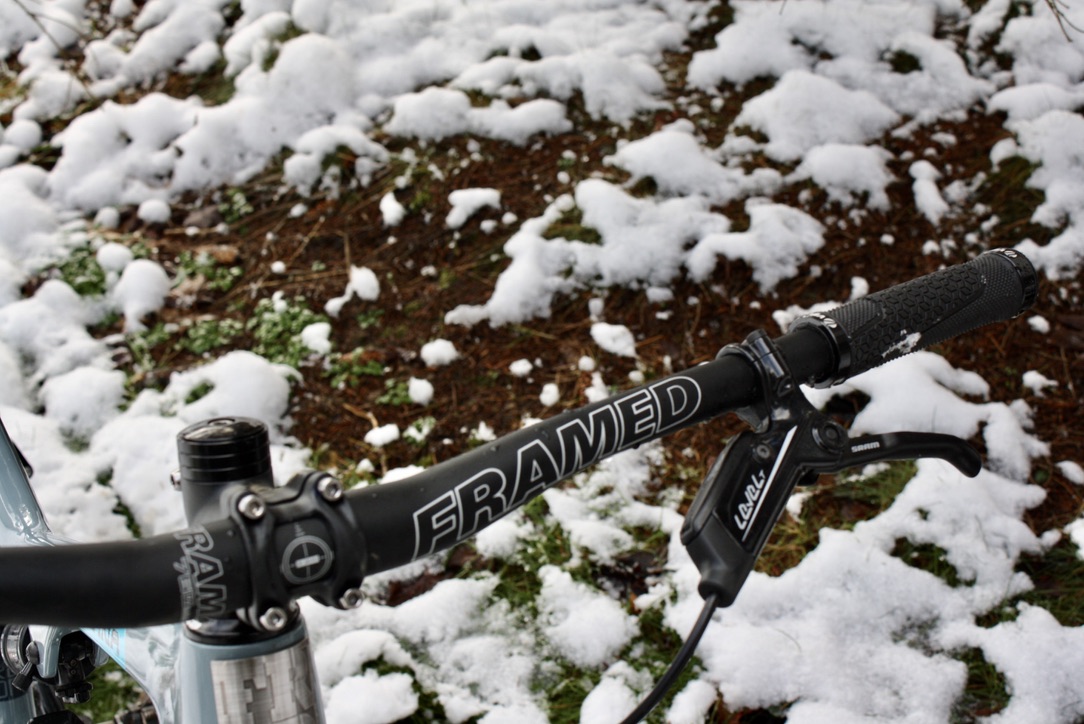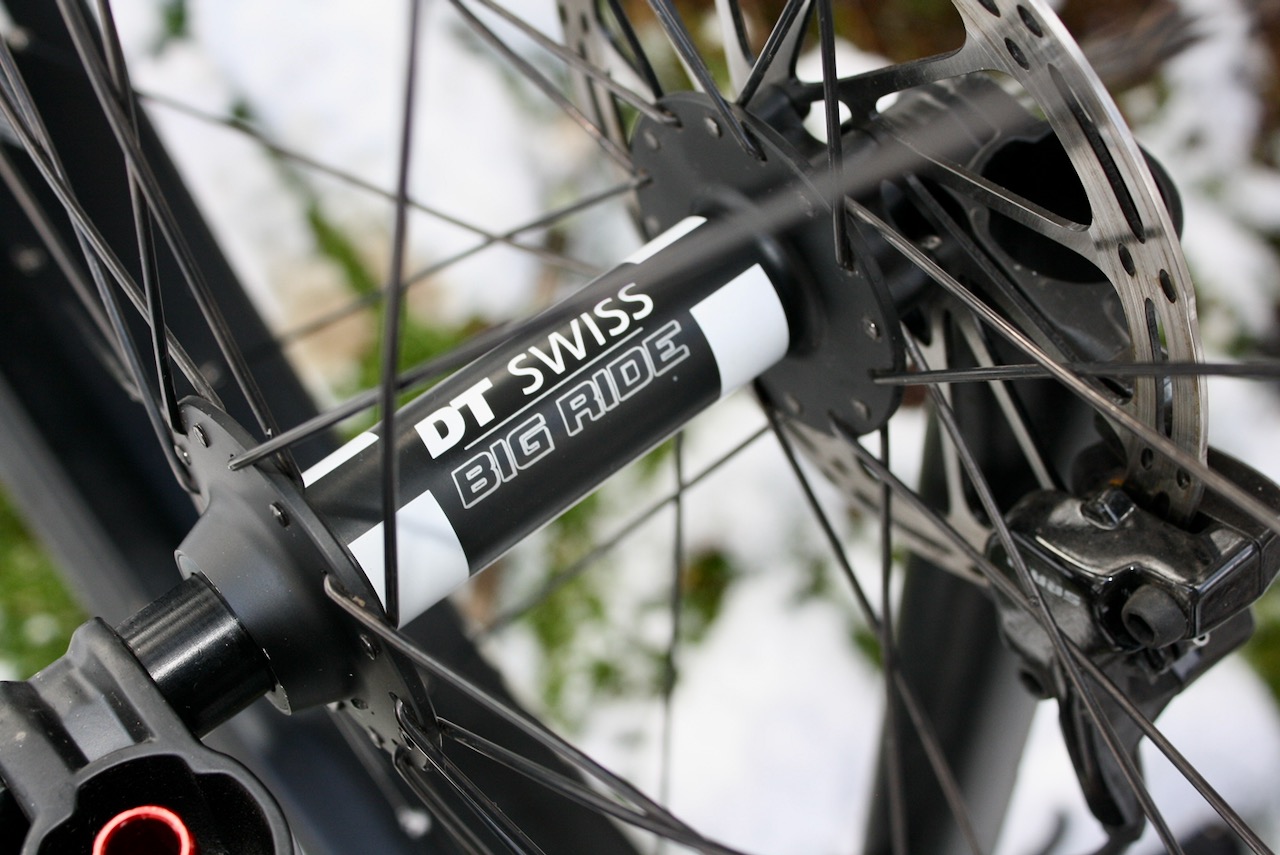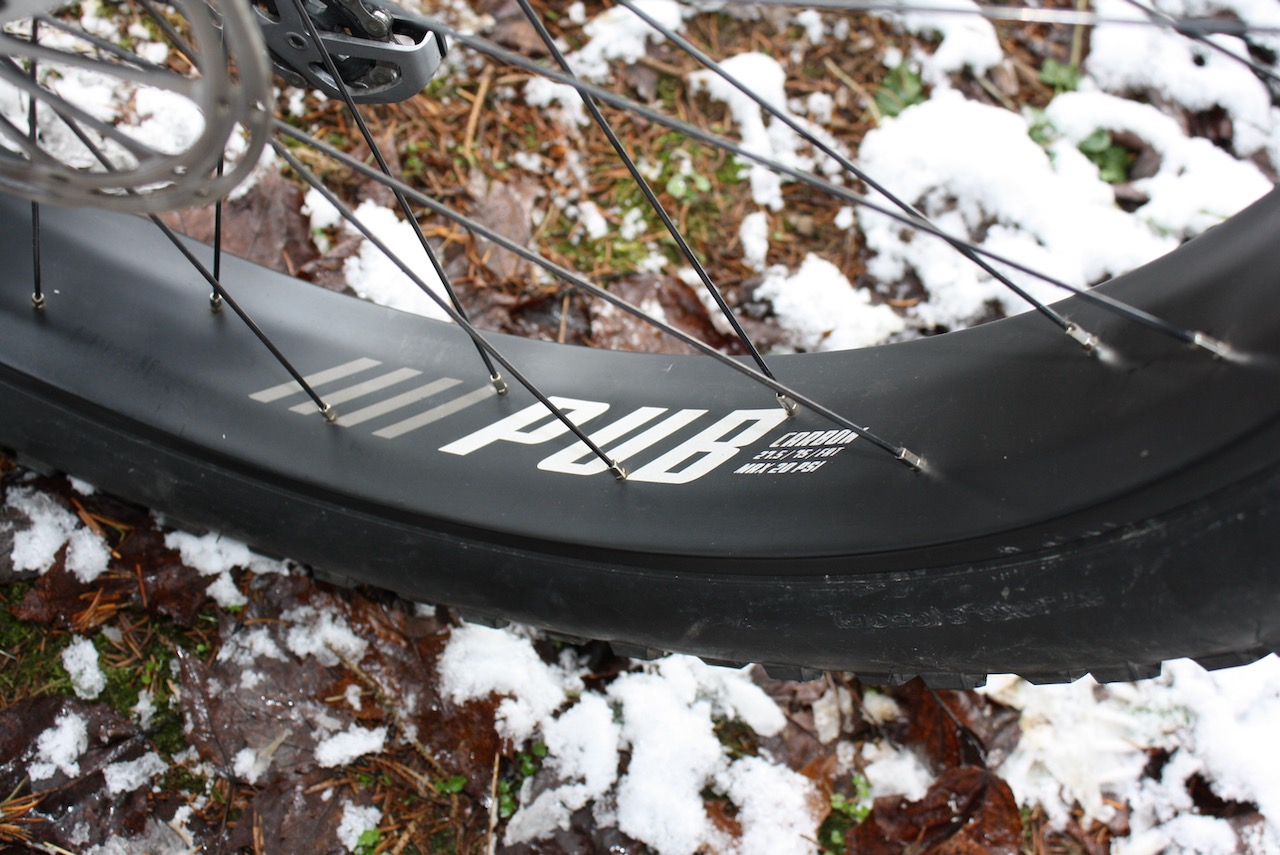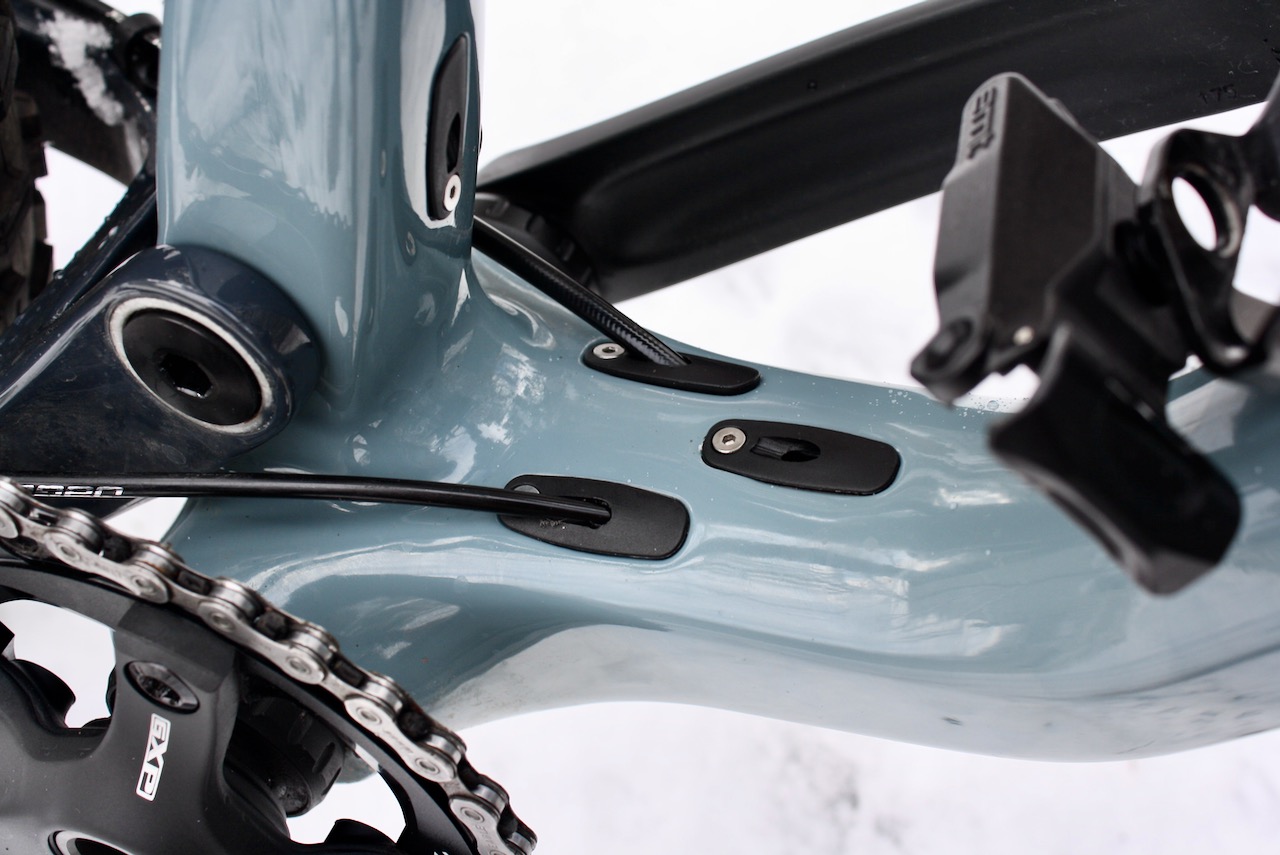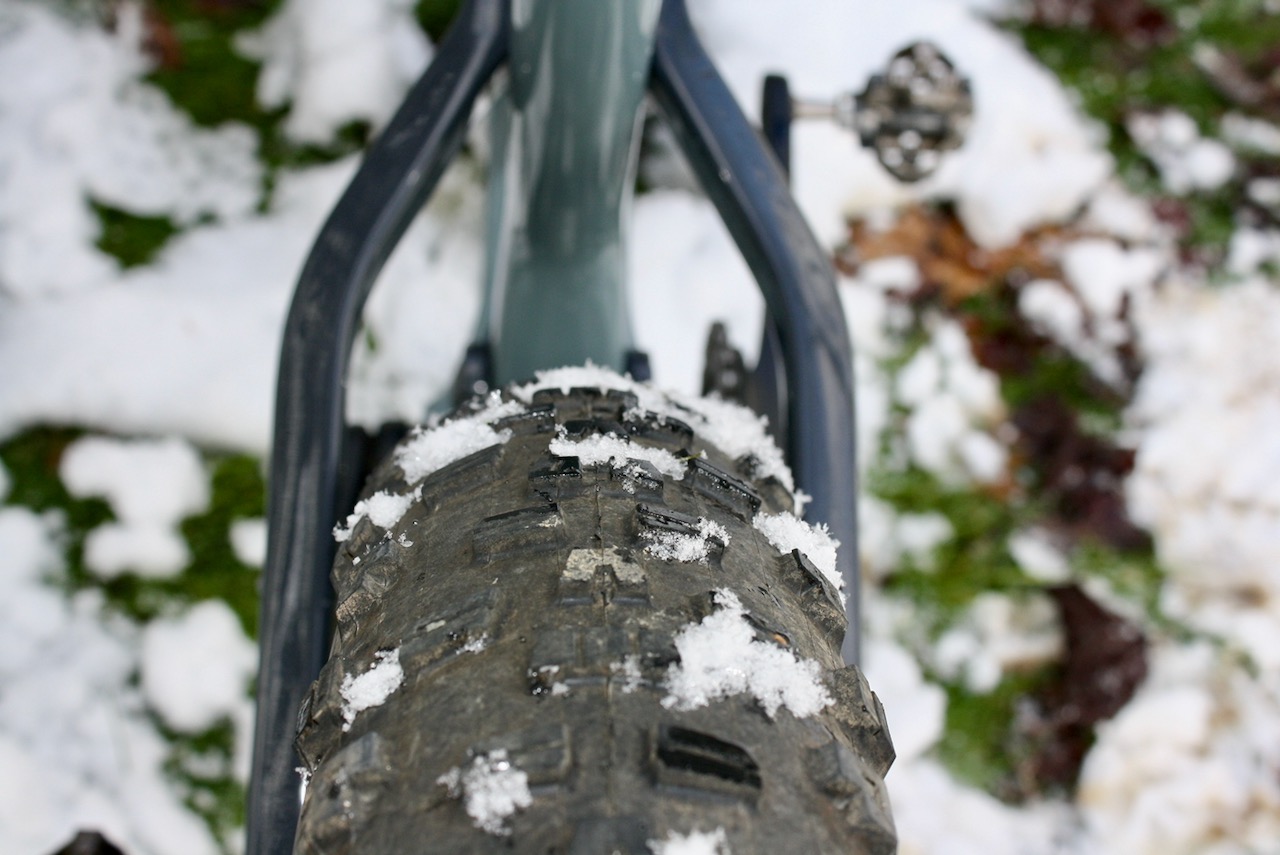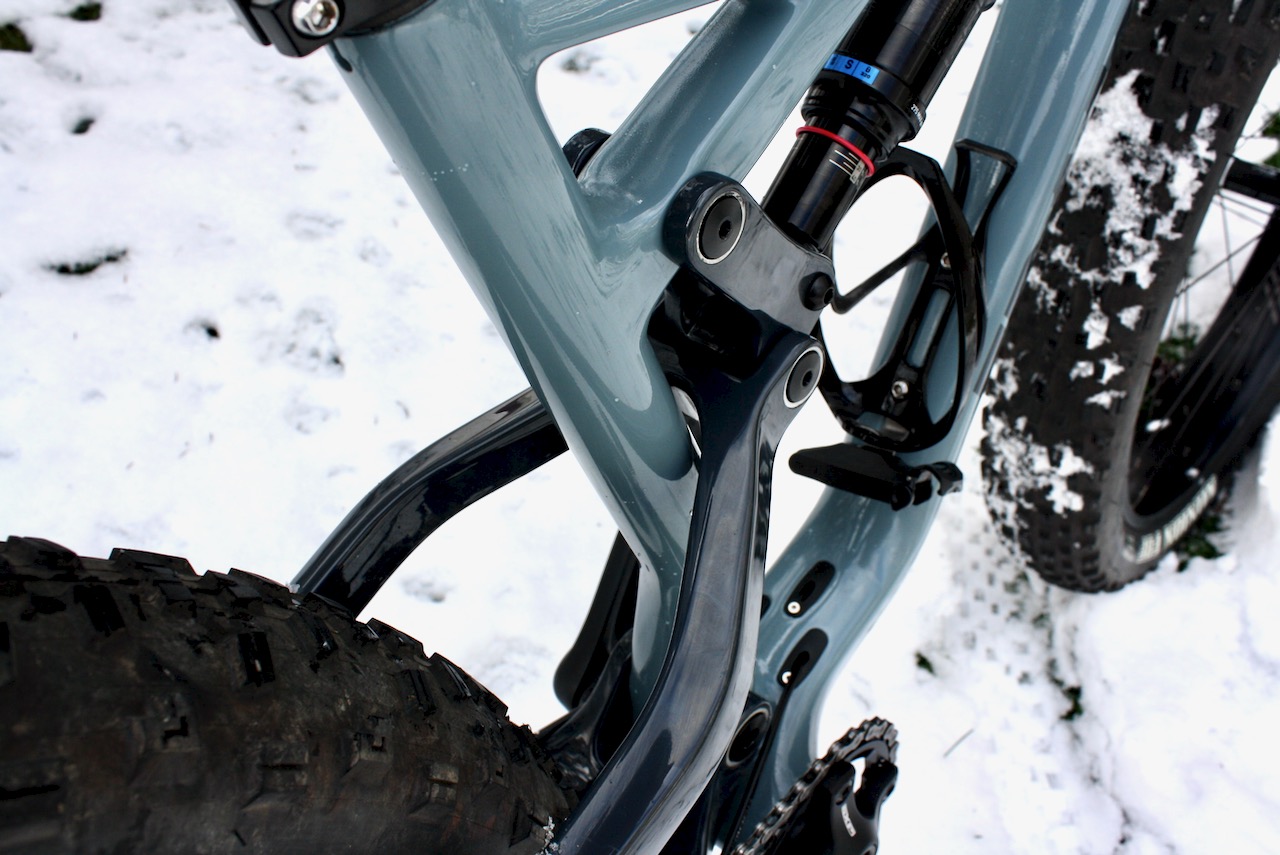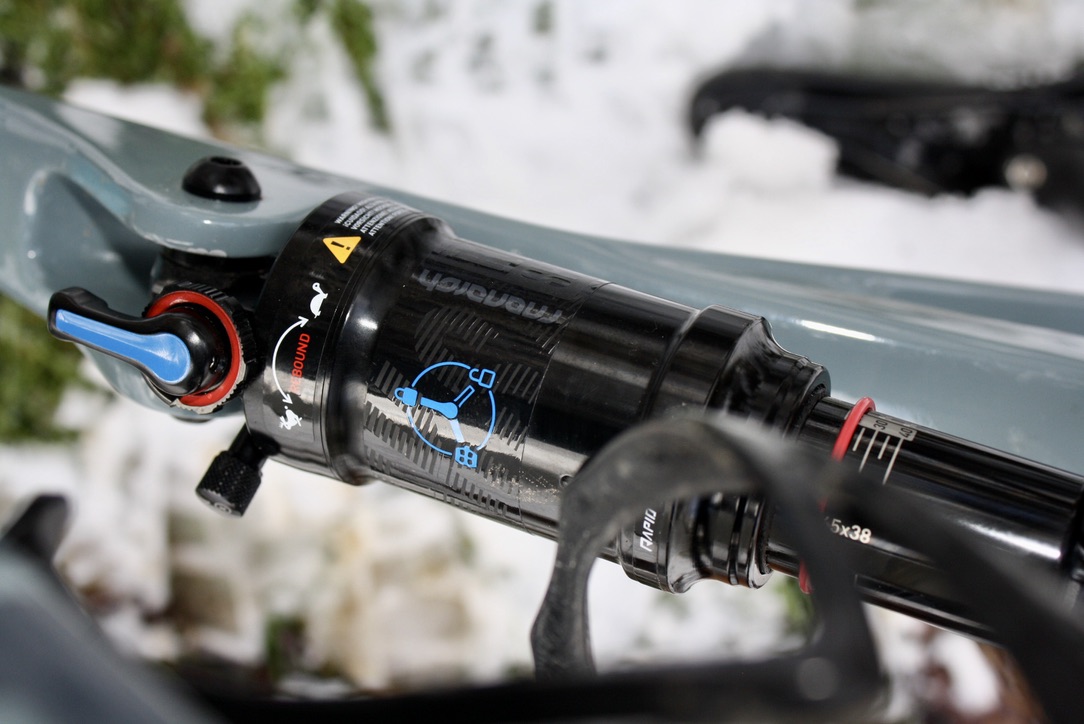The days are getting shorter, and the weather’s colder – winter has finally arrived. That can only mean one thing – time to bust out the fat bikes! Now, I’m usually a rider that keeps it rolling on my cross country bike until I absolutely need to change to a fatter tire, but this season presented some challenges along with some opportunities. The opportunity to ride around on something different, something crazy-fun, and a hell of a workout – the new Framed Montana.
The Framed brand is no stranger to adverse riding conditions – based in Minneapolis, Minnesota – they know what can survive in real snow, and gear that only appears that it will. The feeling of riding one of these four-inch tire beasts around your local trails will change your viewpoint and can rekindle your love of an over-sessioned spot.
Now a full-suspension fat bike is something that seems excessive, but once you ride it, you’ll be hard-pressed to find a bike more confidence-inspiring. The Montana boasts a fairly aggressive geometry for a fat bike with a 68.5° headtube and a 73.5° seat tube angle – more aggressive than some cross country machines out there. I went with the 17″ frame out of the three sizes available. Framed claims the 17″ will fit anyone from 5’7″-5’11”, and I agree. The sloping top tube allows for easy on and off – whether dismounting or falling in the fresh powder. The Montana’s wheelbase is shorter than some hardtail fat bikes measuring 1142mm with 461mm chainstays.
Notable Montana Geometry specs
The Framed Montana is available in 15″,17″ (Tested), and 19″sizes.
- Effective Top Tube: 59cm
- Headtube Angle: 68.5°
- Seattube Angle: 73.5°
- Chainstay length: 461mm
- Wheelbase: 1142mm
- Bottom Bracket Drop: 24mm
- Headtube: 120mm
- Standover: 800mm
- Reach: 711mm
- Weight: 33.00 (w/o pedals)
- Price: $2900.00 (alloy wheel option available)
Notable Framed Montana specs:
- Frame: Framed High-Modulus Carbon Fiber Frame 177×12. Integrated headset, two water bottle cage mounts, internal cable/housing routing, and quick release thru-axle rear.
- Fork: RockShox Bluto 150x15mm
- Rear Shock: RockShox Monarch RT3 100mm travel
- Wheels: PUB Carbon 27.5″ with DT Swiss Hub 150/15mm, 177/12mm
- Tires: Maxxis Minion 27.5 x 3.8in – tubeless
- Shifter/Derailleurs: SRAM GX Eagle 12 speed
- Cassette: SRAM GX Eagle PG 10-50
- Crankset: SRAM X1 30t – 175mm
- Brakeset: SRAM Level T hydraulic disc, 160mm rotors (F/R)
- Handlebar: Framed All Mountain Aluminum Alloy 760mm/31.8
- Stem: Framed 60mm – 31.8mm
- Seat Post: PUB Carbon 2-bolt 31.6
The Frameset
The Montana frame is high-modulus carbon, with minimal ports underneath for mud and slop to penetrate. It runs a 177x12mm rear that keeps the rear clearance tight for leg and heel strike while keeping the crankset Q-Factor manageable. The downtube is a triangle shape (I dare not say aero) and resembles the Cervelo “Squoval” tubing. The top tube is much slimmer in comparison, showcasing the performance nature Framed was aiming for.
The frameset is 1x specific with internal dropper post routing and a threaded bottom bracket. Near the crankset, all the cables neatly run out from three internal ports to the rear derailleur and brake caliper. The design is clean and the housing is easy to run/service when needed. Running a 1x specific frameset allows Framed to get as much clearance for the tires as possible and keeps the handling tight. It’s hard to hide such a big tire, but Framed achieves a tight wheelbase and shorter chainstays with this method. The suspension needs are carried out by a RockShox Bluto 100mm (150X15mm) in front and 100mm from a RockShox Monarch RT3 in the rear. While any fat bike is more than just a sand or snow bike, adding full suspension really opens up the bike’s abilities for more technical terrain and higher speeds.
The drivetrain; a SRAM GX Eagle rear derailleur, shifter, and 10-50T cassette, paired with a SRAM X1 30T crankset is a combination of cost-effective and practical. The combination of the 30T chainring and the 10-50T cassette give the rider more than enough options for the low and high-end gearing. SRAM takes care of the stopping duties as well, with SRAM Level T brakes paired with 160mm rotors (front and rear). I was surprised that the front rotor wasn’t 180mm considering Montana’s mass, but the Level T’s are reliable and perform well in all conditions.
Framed picked components that would help Montana perform up to standard but not burden the price in such a way that makes it unattainable. In shifting performance, the SRAM GX Eagle is precise and carries many sensations from the top tier Eagle lines – with minimal cost. Plus, low replacement cost for components can be key for a Fat bike because we all know, you’re eventually gonna take a tumble in the snow – hopefully not on the expensive side (not to mention winter conditions can be very hard on drivetrain durability).
The bars, stem, and seat post are all Framed’s in-house brand and performed well. I’m impressed with the carbon seatpost from PUB, it’s light and aesthetically similar to an Easton EC90, showing they can run with the pack on carbon components.
The Ride
A bike like this, you really can’t ride without a smile. It’s carbon, it’s fast, it’s a blast on trails and fresh powder. My first rides were all about dialing it in. I was concerned that adjustments to the bike would be lost through the big tires. But I found that I could dial this bike nearly everywhere though; fork, rear suspension, and I could feel the changes, even with the voluminous tires.
The novelty of the big tires and squish wore off around my third ride, and I started connecting with the Montana as a performance bike. It could handle rocks and roots much better than I thought, and I found myself favoring it when going on a hard day out. The carbon PUB wheels help the Montana climb well and keep the machine’s overall weight down.
My favorite terrain for the Montana has to be fast flowing sections of trail with plenty of driving sections. The bike carries speed and rolls over the trail like a steam roller, but the nimble feeling of the front end and superb grip of the tires really allows you to lean the bike over. Sometimes it felt like riding a dirtbike through the woods, with the tire knobs cracking audibly over the roots descending switchbacks.
After many rides on the Montana I appreciate the setup and stiff pedaling platform. Putting power on the pedals moves the bike forward efficiently with no notable flex or squirm in the frame. The frame is smooth and has no ice shelves, the sloppy snow falls right off – no pockets for it to sit and freeze in. The 27.5×3.8 tires have some wiggle room in the frame and allow for snow to quickly clear when you’re blazing fresh powder.
My only complaint on the Montana would be the clamp size of the bars and the need for a dropper post. The bars that come stock are standard 31.8mm and felt a bit noodly at times with the bike’s weight and grip from the front tire. A 35mm bar seems like it would add some precision to the steering, especially driving through downhill rock gardens. The carbon seatpost is nice, but it really does nothing for performance or weight for that matter.
A dropper from the gate would be a great touch – though, you can add one while customizing your bike on the Framed site. The Montana’s ride is somewhere between an enduro bike and fat bike – super capable and confidence-inspiring. A dropper would really add to that enduro vibe and allow the rider to have much more control of the bike on super steep sections of trail.
Fat bikes are mainly thought of as “snow bikes,” my time on the Framed Montana changed my thinking. Though bikes like this excel in the snow, they are much more capable than a singular season. The suspension and horst linkage setup let the Montana sing on rock gardens and feature-heavy sections of trail. The 100mm of front suspension feels bottomless with the wide tires, and the RockShox Monarch’s many settings allow for efficient, bob-free pedaling uphills.
My time on the Framed Montana changed my views on what a full-suspension fat bike is and who rides them. This is a bike that can ride nearly everything, snow, trail, sand, and roads (slowly), and is very fun even for a “no-fun-all-intervals” rider. For someone looking for a bike that sticks out in the crowd and gives an extra boost in confidence, the Montana is worth checking out – especially for fans of the Salsa Bucksaw who are bummed that is has been discontinued.
The Montana spec is spectacular for the price, and the ride will definitely put a smile on your face. You can customize the build kit to fit your ride needs and budget all with the same carbon frameset as your canvas.
